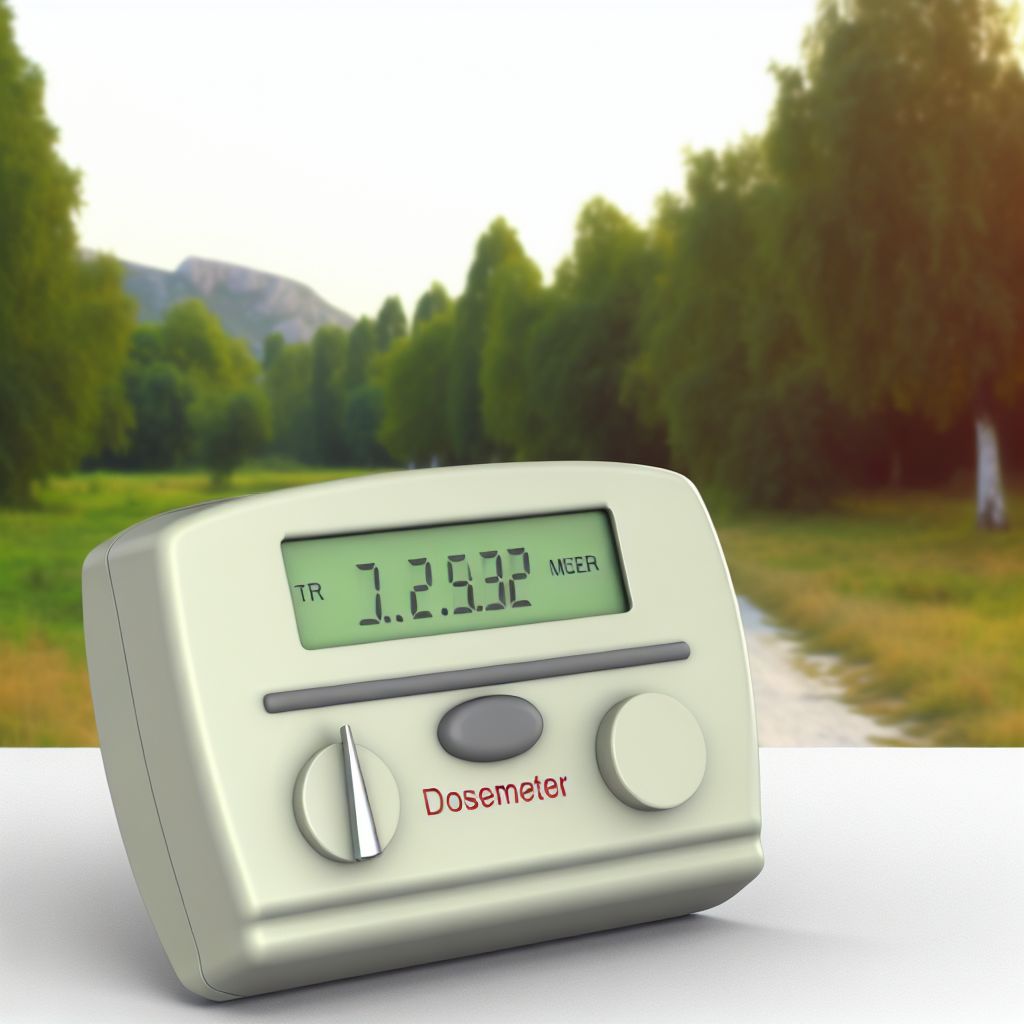Deutsch: Dosimeter / Español: Dosímetro / Português: Dosímetro / Français: Dosimètre / Italiano: Dosimetro
In the quality management context, a dosemeter (often spelled dosimeter in English) is a device used to measure the dose or accumulated exposure to a particular agent or condition over time. In quality management, especially in industries where personnel or products are exposed to potentially harmful or controlled conditions such as radiation, chemicals, noise, or other environmental factors, dosimeters play a crucial role in ensuring safety and compliance with health and safety standards. They provide quantifiable data that can be used to assess whether the conditions meet predefined quality and safety criteria, enabling organizations to take corrective actions if necessary.
General

Dosimeters are essential for monitoring and documenting exposure levels to ensure they remain within safe and acceptable limits. They help in protecting the health and safety of employees, ensuring product integrity, and maintaining regulatory compliance, which are all critical components of quality management systems.
Description
Dosimeters can vary widely in their design and application, depending on the type of exposure they measure. For example, radiation dosimeters measure the exposure to ionizing radiation, while noise dosimeters assess exposure to sound levels over time. These devices can be wearable, portable, or stationary, providing flexibility in monitoring various quality and safety parameters in different environments.
Application Areas
- Healthcare and Laboratory Settings: Monitoring radiation exposure of medical staff and patients.
- Manufacturing and Industrial Sites: Assessing chemical exposure or noise levels to ensure worker safety.
- Nuclear Energy Sector: Measuring and controlling the radiation dose received by workers.
- Environmental Monitoring: Tracking exposure to various environmental pollutants.
Examples
- A radiation badge worn by radiology technicians to track exposure to X-rays.
- Noise dosimeters used in manufacturing plants to ensure workers are not exposed to harmful levels of sound.
- Chemical exposure dosimeters for monitoring air quality and the presence of hazardous substances in industrial environments.
Risks
- Overexposure: Failure to adequately monitor and manage exposure can lead to health risks for individuals and potential regulatory penalties for organizations.
- Non-compliance: Not using dosimeters where required, or improper use, can result in non-compliance with safety standards and regulations.
Treatment
Implementing a comprehensive monitoring program that includes the use of dosimeters is essential for managing exposure risks. Training for employees on how to properly use dosimeters and interpret the data is also critical. Regular calibration and maintenance of dosimeters ensure the accuracy and reliability of the measurements.
History and Legal Basics
The use of dosimeters has increased with the recognition of occupational health hazards and the development of regulations requiring monitoring and management of exposure to hazardous conditions. Various international and national standards and regulations specify the requirements for exposure monitoring in different industries.
Examples of Sentences
- "The health and safety officer distributed dosimeters to all workers in the high-exposure zone to monitor radiation levels."
- "Analysis of dosimeter data showed that the new safety protocols have effectively reduced noise exposure on the factory floor."
Similar Things or Synonyms
- Exposure meter
- Radiation badge
- Noise monitor
Weblinks
- environment-database.eu: 'Dosimeter' in the glossary of the environment-database.eu
Summary
In the context of quality management, a dosimeter is a critical tool for measuring and documenting exposure to hazardous conditions, such as radiation, chemicals, or noise. By providing accurate data on exposure levels, dosimeters help ensure the safety and health of employees, compliance with regulatory standards, and the overall integrity of products and processes. They are integral to maintaining high-quality standards and managing risks in environments where exposure to certain conditions must be carefully controlled.
--
Related Articles to the term 'Dosemeter' | |
| 'Filtration' | ■■■■■■■■■■ |
| Filtration in the context of quality management refers to the process or technique used to separate unwanted . . . Read More | |
| 'Safety Concern' at top500.de | ■■■■■■■■■■ |
| Safety Concern: A safety concern in the industrial and industry context refers to any potential risk . . . Read More | |
| 'Exposure' at top500.de | ■■■■■■■■■■ |
| Exposure describes the process of allowing radiation to interact with some areas of a photoresist layer . . . Read More | |
| 'Weatherproof' at top500.de | ■■■■■■■■■ |
| In the industrial and industry context, \"weatherproof\" refers to the ability of a product or material . . . Read More | |
| 'Sensor' | ■■■■■■■■■ |
| Sensor in the quality management context refers to a device or component used to detect, measure, and . . . Read More | |
| 'Habitability' | ■■■■■■■■■ |
| Habitability in the context of quality management refers to the conditions that make a space suitable . . . Read More | |
| 'Endurance' | ■■■■■■■■■ |
| Endurance in the quality management context refers to the ability of a product, component, or system . . . Read More | |
| 'Detector' at top500.de | ■■■■■■■■■ |
| In the industrial or industry context, a detector refers to a device or instrument used to identify, . . . Read More | |
| 'Thermometer' | ■■■■■■■■■ |
| Thermometer in the quality management context refers to a device used for measuring temperature during . . . Read More | |
| 'Pollutant' | ■■■■■■■■■ |
| Pollutant in the context of quality management refers to any substance or agent introduced into an environment . . . Read More | |
